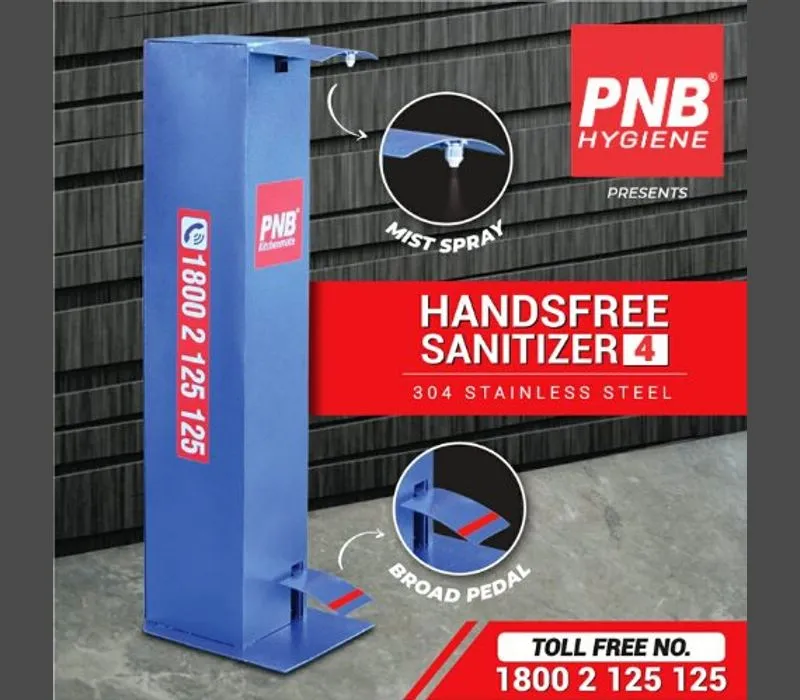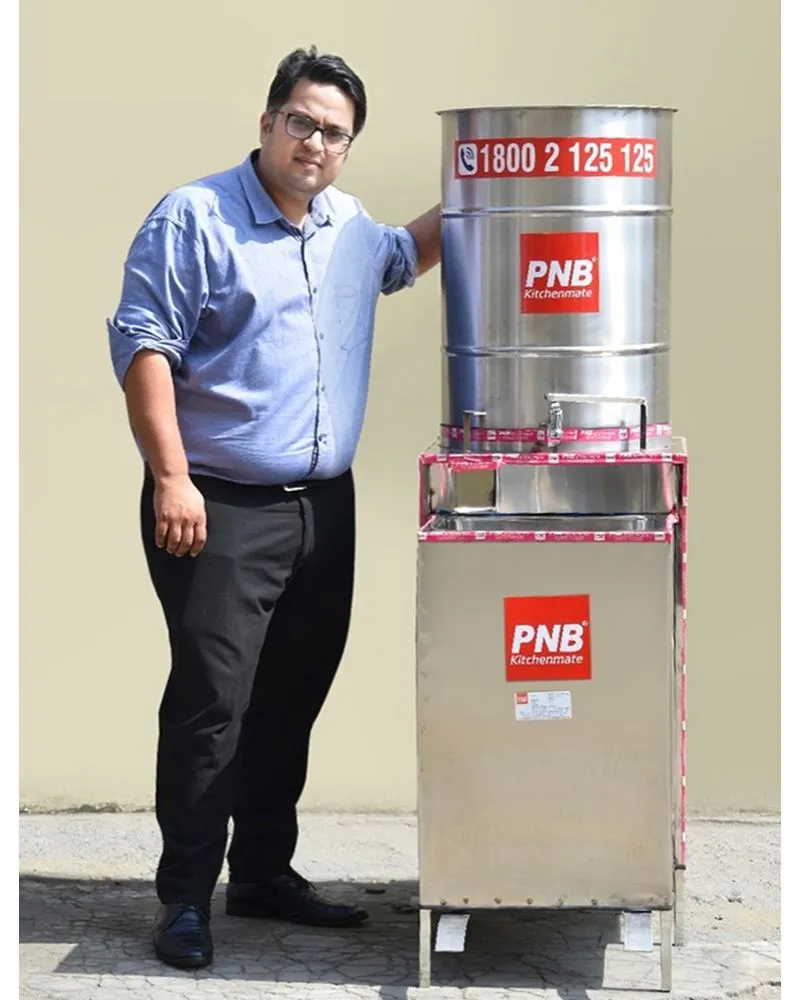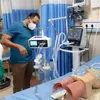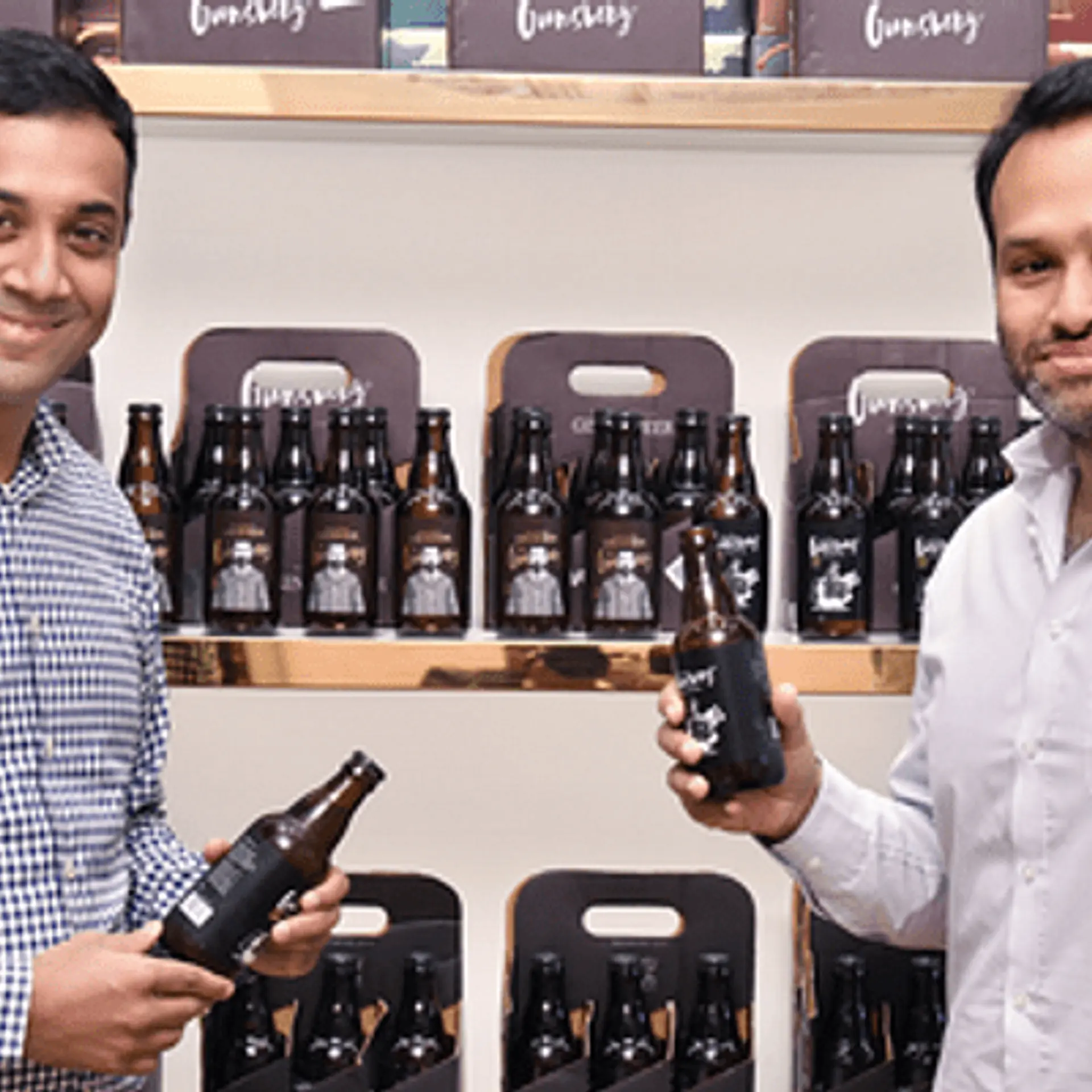This Walmart supplier went from manufacturing kitchenware to sanitiser dispensers after coronavirus
Sonipat-based Shree Shakti Enterprises, part of Walmart India’s supplier programme, shut its manufacturing units after the lockdown. But it started building products that are relevant to the coronavirus crisis.
Rahul Bajaj took over his family business in 2010 after finishing his MBA from Amity University. By then, Shree Shakti Enterprises — a bulk trader of steel utensils started by his grandfather in 1956 — was over half a century old.
In 1997, Rahul’s father established the company’s first manufacturing unit in Delhi, and launched their brand PNB Kitchenmate. By the turn of the millennium, Shree Shakti became a manufacturer and seller of essential kitchenware.
“When I joined the business in 2010, our goal was to expand it. There was a lot of scope in the industry,” Rahul tells .
Between 2010 and 2019, he opened three new manufacturing units, expanded the company’s workforce to 500, and increased its turnover from Rs 10 crore to Rs 140 crore, growing at an average of 40 percent year on year. “Our business was slow until 2013-14, but then we picked up,” Rahul reveals.

Rahul Bajaj, Director, Shree Shakti Enterprises
PNB Kitchenmate diversified its portfolio to nearly 3,000 products across pressure cookers, casseroles, saucepans, woks, plates, lunchboxes, cooking pots, and even puja thalis. They retailed across offline and online channels, including India Best Price stores, India, , etc. and went on to become a household name.
In 2019, Shree Shakti also joined Walmart’s Supplier Development Programme - Vriddhi - in India. Walmart Vriddhi is the US retail giant’s commitment to train, support and prepare 50,000 MSMEs to ‘Make in India’ for global supply chains.
Rahul shares,
“Wherever you go in modern retail, you get very good recognition if you’re a part of Walmart’s supplier programme. From packaging to bar codes to compliances, we turned 360 degrees because of our association with them. We were also able to get more business and have a new vision.”

But come 2020, and Shree Shakti — like most businesses in the world — would hit a speed bump. The coronavirus pandemic ravaged industries, paused economic activity, shut factories, and rendered hordes of people jobless.
Shree Shakti had to close all its manufacturing units in Sonipat, Haryana, as India went into a lockdown in late March. Consumption fell drastically, and sales of non-essential items hit south.
“Our kitchenware business is down to zero. It will come back only when the market opens. People are not in the mood to buy and we should respect that. Money should be saved for medical expenses,” Rahul says.
How COVID-19 forced innovation, ensured survival
Almost compelled to innovate in order to survive, the company started building products that could come in handy in the present crisis. From sensor-based sanitiser dispensers to hands-free hand wash systems and automatic foot sanitisers, Shree Shakti ventured into uncharted territory.
It all started with a video Rahul stumbled upon on social media. It showed a hands-free hand wash station that could be operated through a foot pedal. He realised that it was something that could be built in his plant and even installed there for the safety and sanitisation of workers.
Rahul started building the first prototype within days of the lockdown. He installed the first unit of the hand wash system in his colony. Buoyed by the positive feedback he received from residents, he sent the prototype to Walmart India to check its technical feasibility and commercial viability.

PNB hands-free sanitiser dispenser
The product comes in different sizes, and is priced between Rs 15,000 and Rs 25,000 apiece. The touch-free device dispenses soap or hand wash if you press a lever with your foot. You push a second lever for water to rinse your hands. And, the third part of the unit comes with a sanitisation tray for footwear.
“By just stepping into the tray, your complete sanitation is ensured,” Rahul says. “Foot sanitisation isn’t getting as much attention as hand sanitisation now. But we expect this trend to increase in the time to come,” he adds.
YourStory has reached out to Walmart India for inputs on the above products, but is yet to hear from the company.
Rahul though claims that the hands-free hand wash prototype flew with Walmart India officials, and the retail giant has, in fact, urged the company to develop sensor-based sanitiser dispensers too.

Shree Shakti has also received 850+ orders from various industries, public and government institutions, including Hero Moto Corp, Wipro, Mohalla Clinics, the Ministry of Home Affairs, CRPF, BSF, police stations, and political parties. This has allowed the company to avoid job cuts and gross Rs 1.15 crore in sales through the lockdown.
“We were able to turn a challenge into an opportunity. We got work permits for only 200 people, which means one person is putting in 2.5x the normal effort. But we’ve managed to run the company without any layoffs even though the margins are not very high,” Rahul explains. “Now that we’ve entered this category [with sub-brand PNB Hygiene], we’ll keep adding new product lines,” he adds.
The automatic foot sanitiser, which is in the works, will be priced between Rs 1,500 to Rs 15,000, depending upon its size and power consumption.
The company says it is ideal for public places, government institutions, laboratories and hospitals, and even offices and residential societies. “We’re in talks with potential customers and will launch the product soon,” Rahul says.
Business in a post-pandemic world
Economists are predicting that the coronavirus will “undo globalisation” and give birth to large-scale regional supply chains.
A study published earlier this week by the Economist Intelligence Unit states, “It is likely that this period of globalisation will not only come to a halt, it will reverse. COVID-19 will push more companies to relocate parts of their supply chains. The outcome of this will be an Asian supply chain network that is both less China-focused and more diverse.”
The World Bank had earlier pointed out how India stands to gain as global companies move their manufacturing bases out of China as it gets mired in a trade war with major economies in the West.
Add to that, Prime Minister Narendra Modi’s recent ‘Local Ke Liye Vocal’ call to Indian citizens. It implies that a massive opportunity beckons local suppliers like Shree Shakti.

Rahul shares,
“We will be focused on R&D and exploring newer distribution channels now. The pandemic has made us relook at our business model. We are expecting only about 25 percent demand in the kitchenware business in the next few quarters. So, we plan to diversify our portfolio, and get into medical and other essential product categories.”
Shree Shakti also plans to set up a manufacturing unit dedicated to the production of sanitiser dispensers, hand wash systems, and other hardware. The company has already built 22 new models of products. It is also in talks with distributors of pharmaceutical and surgical products.
Even though Rahul is unable to make sales projections for 2020, given the growing uncertainty in the market, he believes that “everyone has to take smart, precautionary decisions now”. “That is the only way to go,” Rahul says.
Edited by Teja Lele












